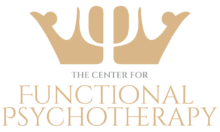PSYCHOLOGICAL NEEDS
Mental health issues such as STRESS, Mood instability, Sadness, lack of Motivation, Shyness, feeling “lost” and “stuck”, internal conflicts
Anxiety, Depression, Bipolar Disorder, Psychosis and other psychological disorders
HEALTH AND BODY NEEDS
Weight, Sleep, Chronic Illness, Autoimmunity, Pain, Metabolism, Nutrition, etc.
Symptoms:
Noticeable fluctuations in weight, both up and down, stomach cramps, Menstrual irregularities (missing periods or only having a period while on hormonal contraceptives (this is not considered a “true” period), Difficulties concentrating, Dizziness, especially upon standing, Feeling cold all the time, Sleep problems, Muscle weakness, Cold, mottled hands and feet or swelling of feet, Impaired immune functioning.
EATING DISORDERS
Disorderly eating issues that affect daily functioning. Emotional eating, restrictive eating, binge eating, lack of appetite or excessive appetite. This also include Anorexia Nervosa, Bulimia, Binge Eating Disorder, Orthorexia (obsession with healthy eating) and other disorders that does not involve body image issues or fears.
FAMILY MAJOR LIFE TRANSITIONS
- Marriage (Separation, Divorce &Custody, Parenting, Reunification, Life After Kids, etc)
- Sex and Romantic Relationships
- Communication
- Intimacy and Connection
- Money & Finances
PSYCHOTHERAPY
Traditional psychotherapy is used for patients in need of traditional talk therapy to cope and adapt with everything that life brings. This approach includes psychodynamic, behavioral, cognitive and other well-known approaches used today in mental health.
ACCEPTANCE AND COMMITMENT THERAPY
The goal of ACT is to focus on changing one’s actions rather than thoughts and feelings. Patients are taught to identify core values and work on creating goals that satisfy these values. We teach patients to separate themselves from emotions and accept that pain and anxiety are a normal part of life. The goal isn’t to feel good, but to live a real life. Through living a regular life, our patients realize they do start to feel better.
COGNITIVE BEHAVIORAL THERAPY (CBT)
A short-term, symptom-oriented therapy that is focused on the beliefs, values, and cognitive processes that maintain the disordered (issue) behavior. The goal is to modify distorted beliefs that in turn will change the behavior.
DIALECTICAL BEHAVIOR THERAPY (DBT)
A behavioral treatment in mental health assumes that the most effective place to begin treatment is with changing health behaviors. The focus is on developing skills to replace maladaptive behaviors. Skills focused on building mindfulness, becoming more effective in interpersonal relationships, emotion regulation, and distress tolerance or positive coping.
FAMILY-SYSTEMS APPROACH
Also known as the Maudsley Method. This is a home-based approach that has been shown to be effective for patients (especially adolescents) with anorexia and bulimia. Instead of focusing on the cause of the eating disorder initial focus is on refeeding and full weight restoration to encourage recovery. All family members are a necessary part of treatment, which consists of re-establishing healthy eating, restoring weight and stopping compensatory behaviors; returning control of eating back to the patient; and focusing on remaining issues.
INTERPERSONAL PSYCHOTHERAPY
Interpersonal psychotherapy (IPT) contextualizes symptoms as occurring and being supported within a social and interpersonal context. IPT is associated with specific tasks and strategies linked to the resolution of a specified interpersonal problem areas. The four problem areas include grief, interpersonal role disputes, role transitions, and interpersonal deficits. IPT helps patients to improve relationships and communication and resolve interpersonal issues in the identified problem area(s), which in turn results in a reduction symptoms.
PSYCHODYNAMIC PSYCHOTHERAPY
The psychodynamic approach holds that recovery requires understanding the root cause of the problem. Psychodynamic psychotherapists view behaviors as the result of internal conflicts, motives and unconscious forces, and if behaviors are discontinued without addressing the underlying motives that are driving them, then relapse will occur. Symptoms are viewed as expressions of the underlying needs and often are resolved with the completion of working through given issues.
INTEGRATIVE PSYCHOTHERAPY
Integrative therapies tap into various levels of mind-body-spirit healing. They have a strong spiritual component, incorporating elements of transpersonal psychology, mental health nutrition and other traditions of healing.Integration of body, mind and spirit illuminates the importance of the therapeutic relationship in healing of all parts. Shadow work offers the search for the inner healing parts that are hidden in the subconscious.
- Nutritional Therapy is a natural healing method that incorporates functional and intuitive nutrition in the treatment program. We help our clients identify nutritionally based issues such as protein intake, blood sugar balance & hypoglycemia, food intolerances, and genetic issues in order to reduce depression, anxiety, insomnia, relapse, and even some psychotic symptoms. The treatment modalities include variety of the nutritional plans that are carefully selected based on the individual needs of the client.
- Creative Art Therapy uses drawing, painting, sculpture, photography and other forms of visual art expression. The patient does not need to be artistically gifted to benefit from creative art therapy, as it generally focuses on the symbolic meaning of the images, colors and the creative process.
- Breath Therapy is a natural healing method that uses high vibrational energy activated by the breath to reduce stored emotions and past trauma that may contribute to disease. This type of therapy allows the patient to utilize breathing as a way to heal and restore the body, mind and spirit at a very deep level.
- Guided Imagery is widely used to change a patient’s overall health by actively creating images of well-being. It can help the patient reduce the effects of certain medical and emotional conditions.
- Life Coaching may not be a therapeutic approach, but it is a great addition to the well known practices allowing the client to identify their needs and wants when it comes to their life choices.


